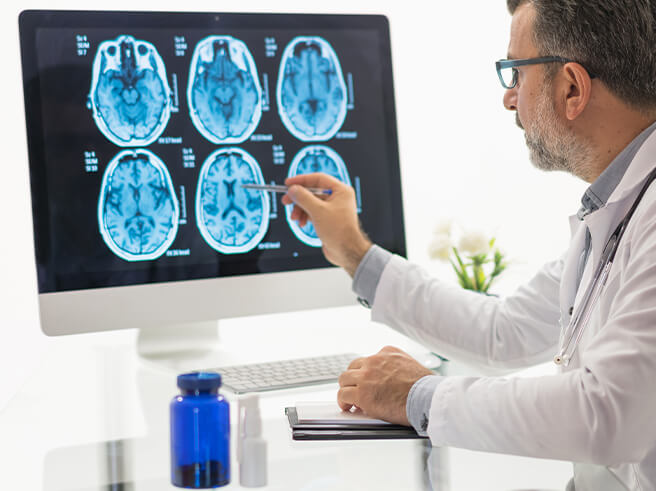Parkinson’s Disease / Movement Disorders
More than a million Americans – particularly those over the age of 65 – suffer from Parkinson's disease, a progressive nervous system disorder that severely affects one’s movement.
Symptoms of Parkinson’s start gradually, often with a barely noticeable tremor in one hand, soft or slurred speech, or little movement of your arms when you walk, but worsen as the condition progresses over time. Often, Parkinson’s starts on one side of your body and remains worse on that side, even as the symptoms begin to affect both sides.
Parkinson’s disease is incurable, but medication or surgery can significantly improve your symptoms, which may include:
- Tremors
- Slowed movement
- Muscle stiffness
- Impaired balance and posture
- Loss of automatic movement
- Changes in speech patterns

While the cause of Parkinson’s disease is still unknown, researchers have identified specific genetic mutations that can trigger the disorder. Other risk factors include age, gender (men are more likely than women to develop Parkinson’s), and exposure to environmental toxins.
In Parkinson’s disease, certain neurons (nerve cells) in the brain that produce dopamine gradually break down or die. Decreased dopamine levels cause abnormal brain activity that leads to impaired movement as well as other symptoms of Parkinson’s.
Often, Parkinson’s disease is accompanied by other treatable complications such as cognitive difficulties, pain, fatigue, sexual dysfunction, smell dysfunction, depression, anxiety, bladder problems, constipation, sleep problems, and difficulty eating, chewing, and swallowing.
Treatment for Parkinson’s Disease in Southeast Michigan
At Associates in Neurology, we specialize in the diagnosis and treatment of neurologic disorders such as Parkinson’s disease. To learn more, contact us today at (248) 478-5512 to schedule a consultation with one of our board-certified neurologists or use our secure, online Request an Appointment form to arrange your visit.


